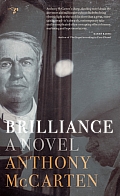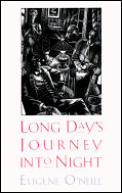
For my second blog post (ever), I wish to conduct a simple (but extensive and even possibly endless) interview with myself. Its purpose is to force the reluctant subject into inadvertent admissions or revelations that the reclusive subject has hitherto kept secret.
You were born in New Zealand. True or false?
Too much importance is placed on where you were born. We are forged in the smithies of our souls, as Joyce put it.
I have a very stereotyped idea of a writer: they drink; they are a little bit dispersed; they have either absolutely no money or, if they are successful, they don't flaunt their wealth. How much of this is correct? And how much of this is a lie?
It's impossible to make a living in the arts, unless you make a fortune. There's almost no in-between. Writers are either broke or rolling in it. Oddly, you can't tell them apart. Both kinds look like shit.
How come New Zealanders name themselves after a fat, flightless bird, the kiwi? Is that a special kind of irony, or what does such an identification tell us about the people?
Every country has a mascot, the Americans their imperious bald eagle, the German also an eagle, the Romans an eagle — many great countries wish to be identified with this graceful flesh-hungry killer in the sky. New Zealand, however, lacking an eagle, had to improvise. It looked around for a bird, one unique to its shores. There were many to choose from, but none had the tragic drama of the kiwi, this failure of a bird, unable to do the one thing every bird must be able to do — fly. We New Zealanders are pleased to be represented by this fat, nearly blind, worm-eating failure. This is not because we have much in common with it but, rather, because the bird is ours, and ours alone. It can never fly away. Perhaps we love it for its centuries of loyalty.
You write plays, screenplays, and novels. What is the difference between writing a play, a screenplay, and a novel?
Writing a novel is a marriage; a play, an affair; a screenplay, group sex.
What do you read?
Novels by my literary heroes, English Sunday newspapers, kind reviews of my work, the writing sent to me by friends or the public seeking advice or feedback, and nonfiction, usually as research for my novels.
What inspires you for your work?
A great idea. When a good one comes, when it seems full of potential, of drama or comedy or both, and which speaks to something universal in our nature, then inspiration comes automatically.
Some critical writers use novels for protest and have huge problems with the particular regime — for example, arrest or deportation. What could you stand better? Not being able to leave your country or not being allowed to enter it?
Most writers live in self-imposed exile, even when they don't leave their country. They prefer the undiscovered country inside their own heads. Any limitations on basic freedoms are equally abhorrent, in principal and in practice.
Do you have a family?
I have three sons and a wonderful partner who has three kids of her own — a patchwork family, then, one short of the number I grew up with.
Are you vain? Can you take a compliment?
As you get older, you become more vain. But as your looks slowly deteriorate, your eyesight worsens, so it all balances out. I cannot only take a compliment, I am prepared to pay for one.
Where is your favorite place to live? And to travel?
I have three favorite cities: London, Wellington, and Los Angeles. What makes them so good? The friends who live there.
I have enjoyed some great vacations recently. I just had a wonderful three days in the hills above Rome, eating, eating, eating.
Are you allergic to anything?
Bees.
What was the last movie you saw?
Batman — the latest one. I kept thinking: Why?
When was the last time you went to the theater, excluding your own plays?
 I went to see a play today, in fact. A superb production of the Eugene O'Neill classic, Long Day's Journey into Night. This 1941 play inspired Arthur Miller eight years later to write his own play about a family in crisis, Death of a Salesman, for me the best play of the 20th century.
I went to see a play today, in fact. A superb production of the Eugene O'Neill classic, Long Day's Journey into Night. This 1941 play inspired Arthur Miller eight years later to write his own play about a family in crisis, Death of a Salesman, for me the best play of the 20th century.
New Zealand is less known for its poets and thinkers than for its picturesque and unspoilt nature. It is said that the people gain a certain pride out of not being considered as intellectuals. At the age of 28, you left New Zealand and never returned except for visits. Was this a reason for you to leave?
Although I now live in England much of the time, I keep a beach house in New Zealand and go back there at least once a year, to be among my own kind. I first left in my 20s and perhaps there was an element of intellectual frustration in my reasons for doing so. But there was also simple curiosity: as a writer I felt in need to be in conversation with a bigger sample of the human race. If there was some frustration, it can be explained by the fact that the classic New Zealander is a practical person. A doer, as opposed to a talker. My frustrations were not unique. The early New Zealand writer, Katherine Mansfield, returning home after her first enthralling trip to England and Germany in 1907 (the sailing voyage took 100 days each way, so the modern air traveler must not complain), expressed disappointment in Wellington, the young colonial city of her birth not then yet 50 years old, damning it for not being as civilized as she wanted it to be:
I am ashamed of young New Zealand. All the firm fat framework of their brains must be demolished before they can begin to learn! We want two or three persons gathered together to discuss line and form and atmosphere, and sit at the street-corners, in the shops, in the houses. These people have not learnt their alphabet yet!
The salon society Mansfield craved had little place in the struggling pioneer life of early New Zealand. Survival was the priority. Life was very hard. Land had to be plowed, swamps drained, roads built, a modern nation formed out of a dream, without a single tractor or motorized implement. And who was to do such crushing work? A few hundred thousand couples: men and women self-selected for their youth, optimism, courage, and naivety, who had responded to advertisements in the European newspapers of the 1840s Almost all of the migrants were poor, or close to it. This new land would reward diligent silent hard work — it demanded no less — and it had little need of abstract thinking. In some respects it still doesn't. But these days — and somewhat miraculously for so few tax payers — the country has everything a country is supposed to have. Among the achievements are opera houses, ballet companies, theatre, and a burgeoning literature. Katherine Mansfield, come back! See your people now, see how they number four million, and see them meeting on street corners in the Wellington of your birth to discuss line and form and atmosphere!
(Read Parts Two, Three, and Four of "An Interview with the Author")